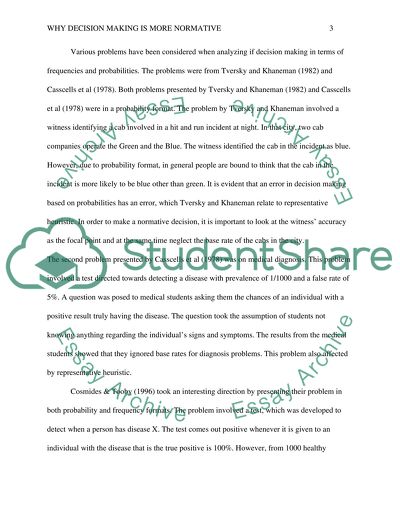Why Is Decision-Making More Normative Essay Example | Topics and Well Written Essays - 750 words. Retrieved from https://studentshare.org/psychology/1441142-why-is-decision-making-more-normative-when-it-is
Why Is Decision-Making More Normative Essay Example | Topics and Well Written Essays - 750 Words. https://studentshare.org/psychology/1441142-why-is-decision-making-more-normative-when-it-is.


